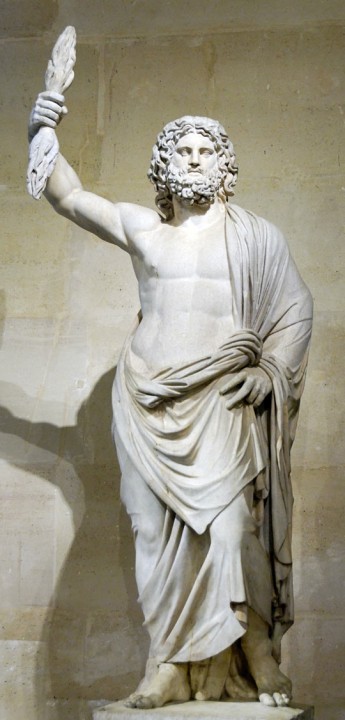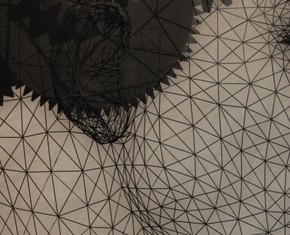The views expressed in our content reflect individual perspectives and do not represent the authoritative views of the Baha'i Faith.
…the Essence of God is incomprehensible to the human mind, for the finite understanding cannot be applied to this infinite Mystery. God contains all: He cannot be contained. That which contains is superior to that which is contained. The whole is greater than its parts. – Abdu’l-Baha, Paris Talks, pp. 23-24.
A few months ago my wife and I decided to throw a little get-together for the neighborhood, so we invited everyone on the block, made a week’s worth of food and played some music—instant party! We had never met several of our guests, a young single mom and her seven-year-old daughter, and I had a fun time getting to know the lively, playful girl, who I’ll call Crystal. You’d like Crystal, too—she’s one of those happy, curious kids with an endless supply of energy who loves to play, run, jump and discover things.
Crystal saw all of our Baha’i books in our library, and asked me about them. When I told her what they were, she enthusiastically said “I’m an atheist!”

“Really?” I asked her. “That’s interesting. And you’re only seven? You don’t believe in God at all?”
“Well,” Crystal told me as she jumped around the room, “I do believe in Odin. And Santa Claus!”
It turned out that Crystal–whose mother is an Iraq war veteran who lost her own faith in combat–had never been to any church or mosque or temple. She had never seen a picture of God, she explained to me, so how could she believe in God? She had, however, seen pictures of Odin and Santa Claus, which led her to believe that they actually existed.
Here, simply, lies the eternal human conundrum—how can we imagine a Creator we can’t see or touch or perceive? How can we know and love a God we can’t comprehend?
This paradox has always been with us.
In the most ancient of human societies, and even some modern ones, people often attempted to depict God in human or symbolic form. In myths and legends, in oral histories and traditions we portrayed God as a fearsome superhero who could throw lightning bolts and create natural disasters like Odin or Zeus; or as a painted icon with a halo; or as a woman with the face of a tiger; or as a blissful Buddha seated in the lotus position; or as a shiva linga statue.
The Baha’i teachings portray the reality of God as “holy beyond imagination,” as an “unknowable essence:”
All the people have formed a god in the world of thought, and that form of their own imagination they worship; when the fact is that the imagined form is finite and the human mind is infinite. Surely the infinite is greater than the finite, for imagination is accidental while the mind is essential; surely the essential is greater than the accidental.
Therefore consider: All the sects and peoples worship their own thought; they create a god in their own minds and acknowledge him to be the creator of all things, when that form is a superstition — thus people adore and worship imagination.
That Essence of the Divine Entity and the Unseen of the unseen is holy above imagination and is beyond thought. Consciousness doth not reach It. Within the capacity of comprehension of a produced reality that Ancient Reality cannot be contained. It is a different world; from it there is no information; arrival thereat is impossible; attainment thereto is prohibited and inaccessible. This much is known: It exists and Its existence is certain and proven — but the condition is unknown….
Hence, through the powers and senses present in man the realization of the Unseen Reality, which is pure and holy above the reach of doubts, is impossible. – Abdu’l-Baha, Baha’i World Faith, p. 381.
As a result of those teachings, Baha’is don’t attempt to pictorialize or represent God in any way.
Instead, the Baha’i writings recommend one route to imagining and understanding the Unseen Reality, that mystical and infinite Supreme Being:
The mystery of Divinity is sanctified and purified from the comprehension of the beings, for all that comes to the imagination is that which man understands, and the power of the understanding of man does not embrace the Reality of the Divine Essence. All that man is able to understand are the attributes of Divinity, the radiance of which appears and is visible in worlds and souls. – Abdu’l-Baha, Baha’i World Faith, p. 322.
Abdu’l-Baha says we can’t understand God, but we can understand “the attributes of Divinity”—so what are they?
In our next essay in this series, we’ll explore those God-like attributes, and examine how they’ve always been transmitted to humanity.
















Comments
Sign in or create an account
Continue with Googleor